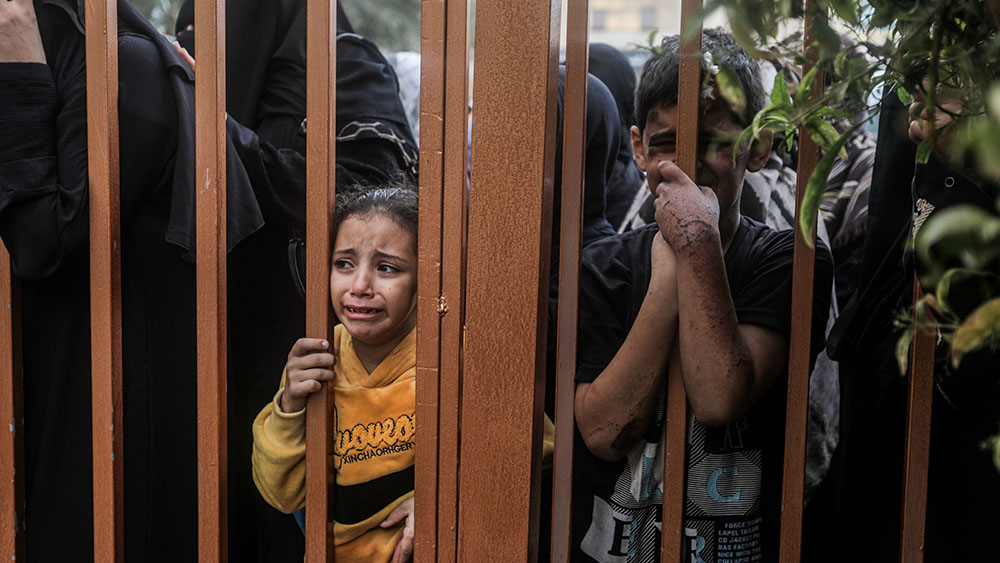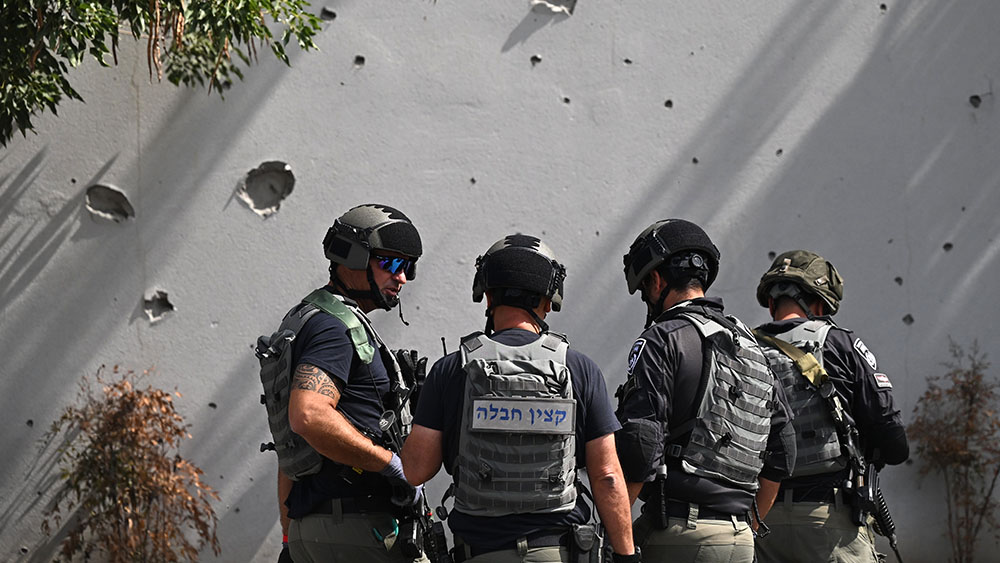 Parler
Parler Gab
Gab
- Thousands of Palestinians remain detained in Israeli prisons.
- Systemic abuse includes beatings, torture, and medical neglect.
- Many are held indefinitely without charge or trial.
- Dozens of detainees have died due to the harsh conditions.
- Israel blocks independent oversight of its prison facilities.
A system of abuse
Rights groups and released detainees uniformly describe Israeli prisons as “torture camps.” They report that prisoners endure daily beatings, humiliation, and sexual abuse. Samir Zaqout, deputy director of Al Mezan Center for Human Rights, stated that freed detainees are in dire condition and urgently need rehabilitation. “They are coming from one hell to another,” he said. Zaqout detailed the harsh conditions, noting that detainees are stripped, blindfolded, and beaten during arrest. “They give 12 people two or three blankets,” he said, describing the systematic deprivation of sleep, food, and basic hygiene. He confirmed that detainees were “subjected to physical and psychological torture all the time inside Israeli jails.” Conditions reportedly worsened after October 2023, when Israeli officials vowed to make prisons “a hell for Palestinians.” The consequences of this systemic abuse are fatal. Due to torture, malnutrition, and denial of medical care, at least 78 prisoners have died in Israeli custody over the past two years. The Palestinian Authority's Commission of Detainees and Ex-Detainees Affairs said video footage of released prisoners highlights the “brutality and criminality” inflicted by Israeli authorities.Israel denies access and independent oversight
Israel continues to block independent oversight of its prison system. Tala Nasser, a lawyer with Addameer Prisoner Support and Human Rights Association, confirmed that Israel prevents the International Committee of the Red Cross from visiting prisons and monitoring conditions. Family visits have also been denied. Nasser called for international action, stating, “The end of the war doesn’t mean the end of Israeli crimes.” She emphasized, “Those responsible must be held to account for the grave violations committed against Palestinian prisoners.” The recent prisoner release offered a glimpse into the human cost of this system. Kamal Abu Shanab, a 51-year-old released after more than 18 years in prison, described his experience as “an indescribable journey of suffering — hunger, unfair treatment, oppression, torture and curses — more than anything you could imagine.” His face was gaunt, and he said he lost 139 pounds (59 kilograms) while imprisoned. His niece, Farah Abu Shanab, said, “We don’t recognize him. He’s not the person we knew.” Prisoner affairs activist Thamer Sabaaneh said Israel uses detainees for revenge. He expects prisoners to launch a movement to improve their conditions, noting that some had told Israeli officers “they would not stay silent if they weren’t released.” The ongoing detention of thousands without charge, under conditions condemned as abusive, presents a profound challenge to claims of democratic process and human rights. As the world focuses on ceasefire agreements, the plight of these 9,000 individuals remains a pressing and unresolved injustice. Sources for this article include: TheCradle.co MiddleEastEye.net APNews.com MiddleEastEye.netThe hidden battle for Gaza: Natural gas deposits and a $6 billion canal route
By Cassie B. // Share
Israel receives body of slain soldier as 15 deceased hostages still held in Gaza
By Cassie B. // Share
Bulgaria offers air corridor for Putin to meet Trump in Budapest peace summit
By Cassie B. // Share
Trump REJECTS Zelensky’s request for Tomahawk missiles
By Ramon Tomey // Share
U.S. and China trade cyberattack allegations as tensions escalate
By Belle Carter // Share
Governments continue to obscure COVID-19 vaccine data amid rising concerns over excess deaths
By patricklewis // Share
Tech giant Microsoft backs EXTINCTION with its support of carbon capture programs
By ramontomeydw // Share
Germany to resume arms exports to Israel despite repeated ceasefire violations
By isabelle // Share










